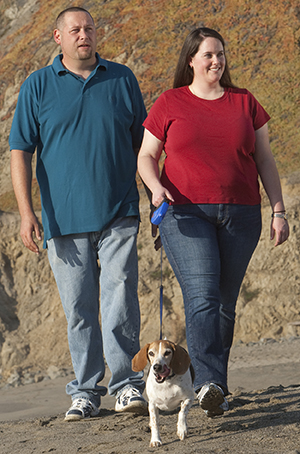Making Bariatric Surgery Work for You
Making Bariatric Surgery Work for You

What to expect as you lose weight
Most likely, you will lose weight steadily for the first 6 to 12 months after surgery. The most rapid weight loss often happens during the first 6 months after surgery. Most patients lose over half their excess weight in the first year and a half. After that, you may gain a small amount of weight back. This is normal. Set realistic and meaningful goals for weight loss. Most likely, you won’t reach your ideal weight. But you’ll reach a healthier weight.
Changing your eating habits
To stay healthy, you may be given guidelines such as:
Choose high-protein foods to help prevent nutritional problems.
Eat slowly. Take small bites. Chew each bite well before swallowing it.
Stop eating when you feel satisfied. Try not to reach that full feeling. Doing so can stretch the bariatric surgical procedure and allow you to eat more.
If you want to snack between scheduled meals, talk with your dietitian about healthy snack choices.
Drink sugar-free liquids, such as water. Drink them between (not with) meals. Wait at least 30 to 60 minutes after meals before drinking liquids.
Take vitamins as directed.
Avoid fibrous foods, such as celery, string beans, and unprocessed meat.
Avoid alcohol and carbonated drinks.
Having an active lifestyle
These tips can help you succeed:
Choose a form of regular exercise you enjoy.
Exercise at your own pace.
Ask a friend to join you.
Keep a record of your exercise activity in a calendar or notebook. Some people find this a good way to track their progress and stay motivated.
Finding support
See your bariatric surgery team on a regular basis, especially during the first year after surgery.
You might talk to:
Friends and family members.
Other bariatric surgery patients. Often they know just what you’re going through. You may find other patients through a support group at your bariatric surgery program. Or there may be a group in your local community.
A mental health professional. If you spoke to one before surgery, you might seek him or her out again. Special counseling or classes may be suggested.
Resources
American Society for Metabolic and Bariatric Surgery
www.asmbs.org
National Heart, Lung, and Blood Institute Obesity Education Initiative
www.nhlbi.nih.gov/health/public/heart/obesity/lose_wt
Updated:
March 21, 2017
Sources:
Late complications of bariatric surgical operations. UpToDate, Overview of medical management of patients after bariatric surgery. UpToDate
Reviewed By:
Image reviewed by StayWell art team.,Meilahn, John, MD,Sather, Rita, RN